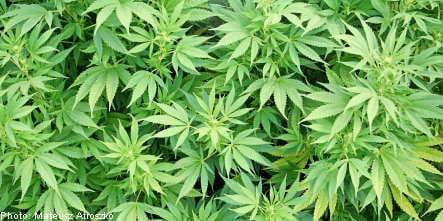Around ten “greenhouses” were uncovered in Skåne in southern Sweden in 2008, reports the Svenska Dagbladet (SvD) newspaper.
Police say that the operations begin when a house, usually in a rural location, is bought or purchased by one or two people from Vietnam.
The property is than transformed into a sophisticated marijuana growing operation, complete with remote-controlled growing lights.
“They manage the cultivation themselves, but I’m convinced there is someone above them who is earning money from the operation. These types of investments have become so expensive that the growers can’t afford them by themselves,” said prosecutor Pär Andersson to SvD.
The marijuana growing operations aren’t limited to Skåne, as police have discovered similar greenhouses in Ljusnarsberg near Örebro in central Sweden, as well as the villages of Agunnaryd and Örsjö in the Småland region of south central Sweden.
In the Småland raids, police confiscated nearly 80 kilogrammes of cannabis and two men were sentenced to prison for six and seven years, respectively.
But the most advanced and far reaching operations are concentrated in Skåne, where a dozen people have been given long prison sentences for illegal drug cultivation.
The increase in local cannabis cultivation in Sweden is in line with a larger trend in Europe.
According to the European Monitoring Centre for Drugs and Drug Addiction (EMCDDA), marijuana traditionally supplied through smuggling is increasingly being replaced by local production, which in turn has resulted in higher profit margins for drug dealers and their associated criminal gangs.
Police say the influx of Vietnamese gangs to Sweden isn’t surprising, but follows a pattern seen in England and Canada.
Since the early part of the decade, criminal elements among the Vietnamese diaspora in both countries have increasingly devoted themselves to growing marijuana.
“Now it is thought that the expertise has also spread to the Vietnamese population in the Nordic countries,” said Johnny Gyllensjö, a member of the police cannabis task force, to SvD.
Gyllensjö explained that dozens of growing operations have been uncovered in both Norway and Denmark. Frequent visits by Swedish growers to their counterparts in both countries indicate that there may be links between all the operations.



 Please whitelist us to continue reading.
Please whitelist us to continue reading.